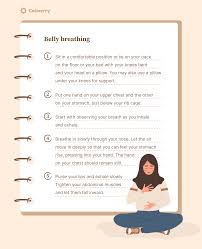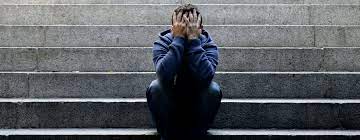The Power of Relaxation Techniques: Enhance Your Well-Being
In today’s fast-paced world, stress and anxiety have become common companions for many people. The constant demands of work, family, and daily life can take a toll on our mental and physical well-being. This is where relaxation techniques come in as powerful tools to help us unwind, recharge, and find inner peace.
Benefits of Relaxation Techniques
Relaxation techniques offer a myriad of benefits for both our mind and body. By incorporating these practices into our daily routine, we can experience:
- Stress Reduction: Relaxation techniques help lower the levels of stress hormones in our body, promoting a sense of calm and tranquility.
- Improved Sleep: By relaxing our mind and body before bedtime, we can improve the quality of our sleep and wake up feeling refreshed.
- Enhanced Focus: Taking time to relax can improve our concentration, memory, and cognitive abilities, making us more productive in our daily tasks.
- Emotional Well-Being: Relaxation techniques can help us manage emotions such as anxiety, anger, and sadness more effectively, leading to a greater sense of emotional balance.
Popular Relaxation Techniques
There are various relaxation techniques that you can explore to find what works best for you. Some popular methods include:
- Deep Breathing: Practice deep breathing exercises to slow down your heart rate, relax your muscles, and calm your mind.
- Meditation: Engage in mindfulness meditation to focus your attention on the present moment and cultivate a sense of inner peace.
- Progressive Muscle Relaxation: Tense and then relax each muscle group in your body to release tension and promote relaxation.
- Yoga: Combine physical postures with breathing exercises in yoga practice to enhance flexibility, strength, and relaxation.
Incorporating Relaxation Techniques into Your Routine
To reap the benefits of relaxation techniques, it’s important to make them a regular part of your daily routine. Find moments throughout the day when you can dedicate time to unwind and practice relaxation. Whether it’s taking a few deep breaths before a meeting or setting aside 10 minutes for meditation before bed, prioritize self-care and relaxation in your schedule.
Remember that everyone is unique, so experiment with different relaxation techniques to discover what resonates with you. By incorporating these practices into your life, you can enhance your overall well-being and navigate the challenges of daily life with greater ease.
Top 5 FAQs About Relaxation Techniques: Benefits, Incorporation, and Impact on Stress and Sleep
- What are the benefits of relaxation techniques?
- How can I incorporate relaxation techniques into my daily routine?
- What are some popular relaxation techniques to try?
- Can relaxation techniques help reduce stress and anxiety?
- Are there specific relaxation techniques that can improve sleep quality?
What are the benefits of relaxation techniques?
Relaxation techniques offer a wide array of benefits for both the mind and body. By incorporating these practices into your daily routine, you can experience a significant reduction in stress levels, leading to a sense of calm and tranquility. Additionally, relaxation techniques can help improve the quality of your sleep, allowing you to wake up feeling refreshed and rejuvenated. These practices also enhance focus and concentration, making you more productive in your daily tasks. Furthermore, relaxation techniques can assist in managing emotions such as anxiety, anger, and sadness more effectively, promoting emotional well-being and balance in your life.
How can I incorporate relaxation techniques into my daily routine?
Incorporating relaxation techniques into your daily routine is key to managing stress and promoting overall well-being. Start by identifying pockets of time in your day where you can dedicate a few minutes to relaxation. Whether it’s during your morning routine, lunch break, or before bedtime, set aside specific moments to practice deep breathing, meditation, or progressive muscle relaxation. Consider creating a calming environment with soft lighting, soothing music, or aromatherapy to enhance the relaxation experience. By making relaxation a priority and integrating it into your daily schedule, you can cultivate a sense of peace and resilience to navigate life’s challenges with greater ease.
What are some popular relaxation techniques to try?
When seeking effective ways to relax and unwind, there are several popular relaxation techniques worth exploring. Deep breathing exercises offer a simple yet powerful method to calm the mind and reduce stress levels. Meditation, whether mindfulness or guided, can help cultivate a sense of inner peace and clarity. Progressive muscle relaxation involves systematically tensing and relaxing different muscle groups to release tension and promote physical relaxation. Yoga combines gentle movements with controlled breathing to enhance flexibility, strength, and overall well-being. These popular relaxation techniques provide diverse options for individuals to find what resonates best with their preferences and needs for relaxation.
Can relaxation techniques help reduce stress and anxiety?
Relaxation techniques have been widely recognized for their effectiveness in reducing stress and anxiety. By engaging in practices such as deep breathing, meditation, progressive muscle relaxation, and yoga, individuals can experience a profound sense of calm and relaxation. These techniques help lower the levels of stress hormones in the body, promote mental clarity, and improve emotional well-being. Regularly incorporating relaxation techniques into one’s routine can lead to a significant reduction in stress and anxiety levels, allowing individuals to better cope with the challenges of daily life and enhance their overall sense of well-being.
Are there specific relaxation techniques that can improve sleep quality?
When it comes to improving sleep quality, there are indeed specific relaxation techniques that can be highly effective. Practices such as deep breathing exercises, progressive muscle relaxation, guided imagery, and meditation have been shown to promote relaxation, reduce stress levels, and prepare the mind and body for a restful night’s sleep. By incorporating these relaxation techniques into your bedtime routine, you can create a calming environment that signals to your body it’s time to unwind and prepare for a rejuvenating night of sleep. Experimenting with different techniques and finding what works best for you can significantly enhance your sleep quality and overall well-being.



